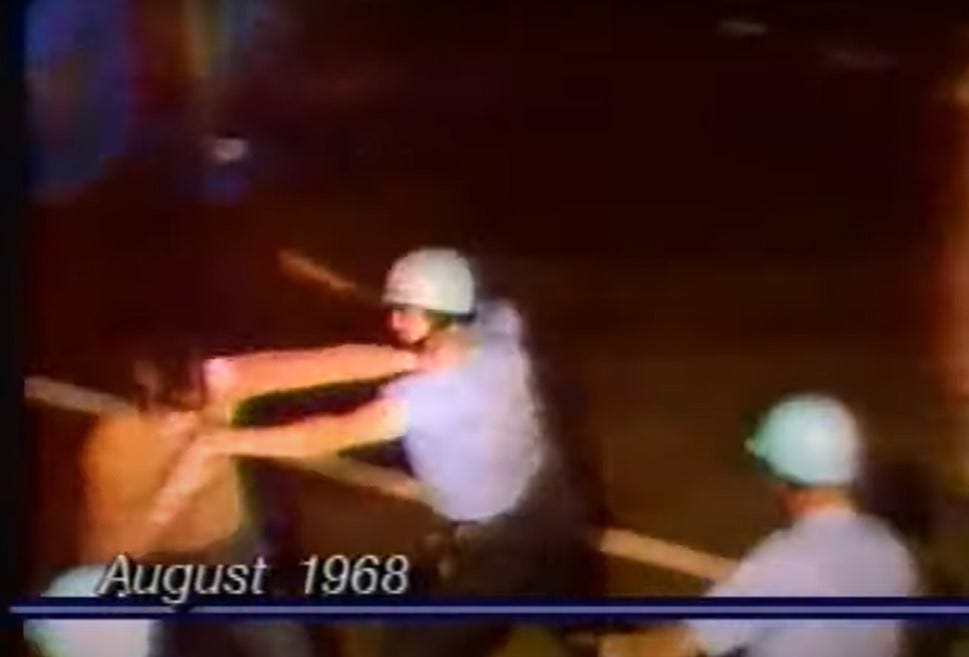_The Opposition_ and What They Opposed
A review of Todd Gitlin's novel on the activism of the 1960s
[Establishment vs. Anti-establishment in the streets of Chicago, August 1968]
The review of Todd Gitlin’s final book that I mentioned recently is now up at Public Discourse.
Below is a slightly longer version, with some discussion of the novel’s treatment of the black radicalism of the period that was edited out to get the PD version under the required w…




